JUST WANNA HAVE FUN, SAID THIS GIRL, BUT A HOCKEY STAR SHE BECAME
Share
Life and times of 80s star, captain, double World Cupper and Asian Games Gold medalist, who had a colourful career that inspired a generation of youngsters – Editor
By ERROL D’CRUZ
Selma Juliet Christina D’Silva had more paper kites in her collection than her four brothers. That wasn’t too much of a surprise. As the local tomboy, she vied with the lads in the neighbourhood – be it flying kites, playing marbles and a host of sports. “I don’t remember playing with dolls as a little girl. But sports, be it football, cricket, basketball, ‘gilly-danda’… you name it, I played with the boys,” Selma says with a chuckle.
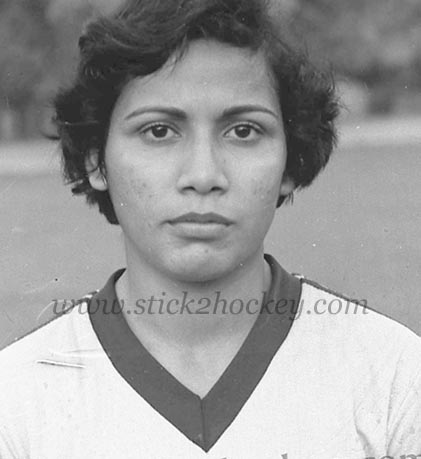
Star forward Selma, 1980s
She also wielded the hockey stick with aplomb.
“Yes, I just loved playing the game,” Selma says from her home in Dabul, Mumbai, cherishing the memories of her girlhood. “I played with the boys on whatever patch of land we could get, often times on a concrete ground. But I never dreamed of nor expected to play for India,” the crack inside-left of India’s gold medal winning 1982 Asian Games team reveals.
But there were watchful eyes who believed she would one day. Those belonged to coach Romauld Pereira who settled for no less than seeing the nine-year-old play for St Anne’s Girls’ High School, Dabul. “He talked to my mother and then did his best to influence the Principal of the school to develop a team for inter-school competitions,” 60-year-old Selma flashes back. Pereira’s efforts were successful. St Anne’s took the pitch with a gutsy little Selma raring to go, little realizing that she was much the fulcrum of change when it came to women’s hockey in the locality. The coach’s initiative also paved way for Selma’s own pathway towards donning the coveted colours of her country. 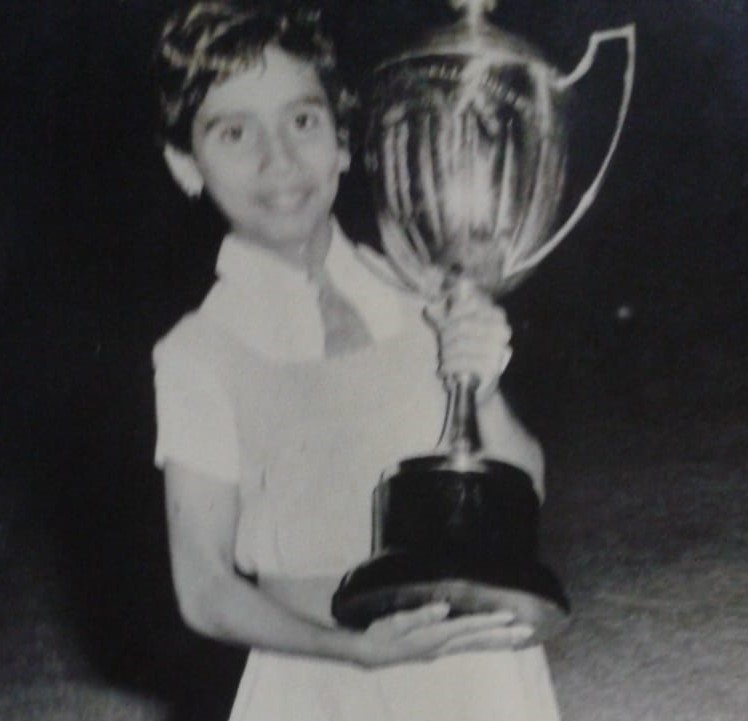
Romauld was the first in a string of coaches Selma is deeply grateful to. “Pat Crasto and Willie Anton also moulded my skills and gave my talent a firm foundation,” she says. “Then, as I moved up levels, Jaswant Singh, Satinder Pal Walia and Balkishen Singh fine tuned my skill set to meet international standards. By 11, she represented Bombay (now Mumbai) in the Junior National championships in Pune. At 15, she participated in the Senior Nationals in Goa and that very year received a call-up to the national team. Concurrently, she went through the grind and toil, pursuing a sport which she once thought only as a source of fun and joy. “In school, it was my responsibility to get my teammates to the ground for practice. “So there I was knocking on their doors at 5.30am, awakening them from deep slumber and making sure they made their way to our training sessions.
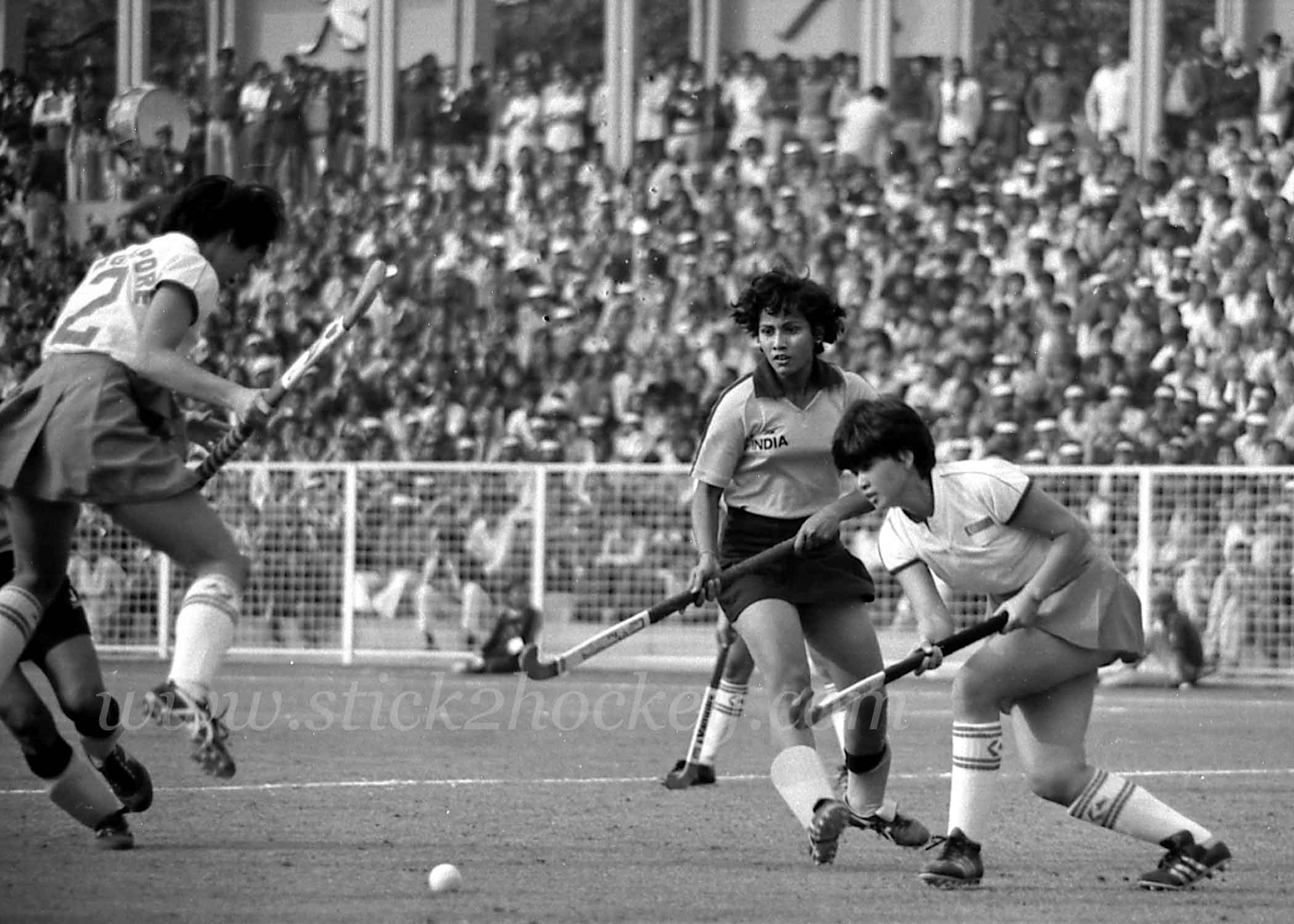
Selma D’Silva (c) in action during the Delhi Asiad, 1982, where top scored. Photo Ashok Vahie
After finishing school, Selma took her twinkling blade to Higher Secondary where she shone for St Sebastian Goan High School at the Police Gymkhana Ground where she was the cynosure of all eyes. When it came to University, the famous coach Jaswant Singh of Khalsa College – an institution known for its promotion of hockey – was determined to see Selma on campus. “Most of my friends joined St Xavier’s and I was keen on doing so too but Jaswant persuaded me to join Khalsa. I was saddened to part company with my close friends. Besides, travelling to Khalsa at Matunga from Dabul was demanding since it meant changing trains from Western to Central Railway,” Selma explains some of the travails of pursuing a sport in Mumbai. “But I made that decision and hockey-wise it was the best thing I did. Especially because I then came under the tutelage of Jaswant – the man who moulded me. I owe it to him for making me the player I was,” Selma reveals, her voice tinged with emotion.
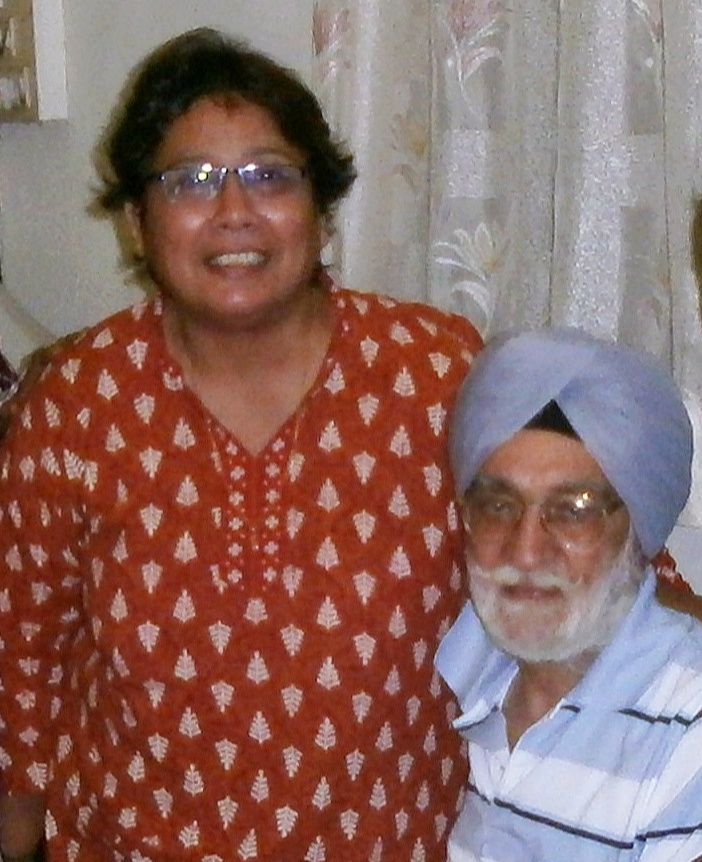
With coach Jaswant Singh
But it wasn’t easy by any reckoning. Especially going by Jaswant’s dik-tat. “We trained three and a half hours in the morning and another session of the same duration in the evening! “It was hockey 365 days of the year with neither Christmas nor Diwali breaks. And no Sundays off! ‘Do you take a break from eating on Sundays?’,” was his reply when we asked for a Sunday off. “When we (the Catholic girls in the team) pleaded of him to give us some time off to attend Sunday morning Mass, he was quick to point to Don Bosco’s church just across where we could go to fulfil our obligations and return for practice! We were a familiar sight in church on Sundays. A clutch of girls, clad in track suits!
“Jaswant was a disciplinarian to the core,” says Selma. “He was first at the ground and there was little sympathy if we turned up late. My neighbours caught me sprinting to catch a train in order to avoid being late at training and word reached my mum. I thought it was OK for Jaswant to land up at training on time. After all, he lived just opposite the ground. He later moved to Borivali in the suburbs but still remained the first to be present on the ground!
“There were no compromises for hard training,” recalls Selma. “Jaswant focused on the fundamentals – trapping, flicking, pushing, hitting and dribbling. My skills were in good shape but they were fine tuned by him. Jaswant never went easy on building our basics in the game. Nor did he when it came to developing stamina and we took to long-distance running often.”
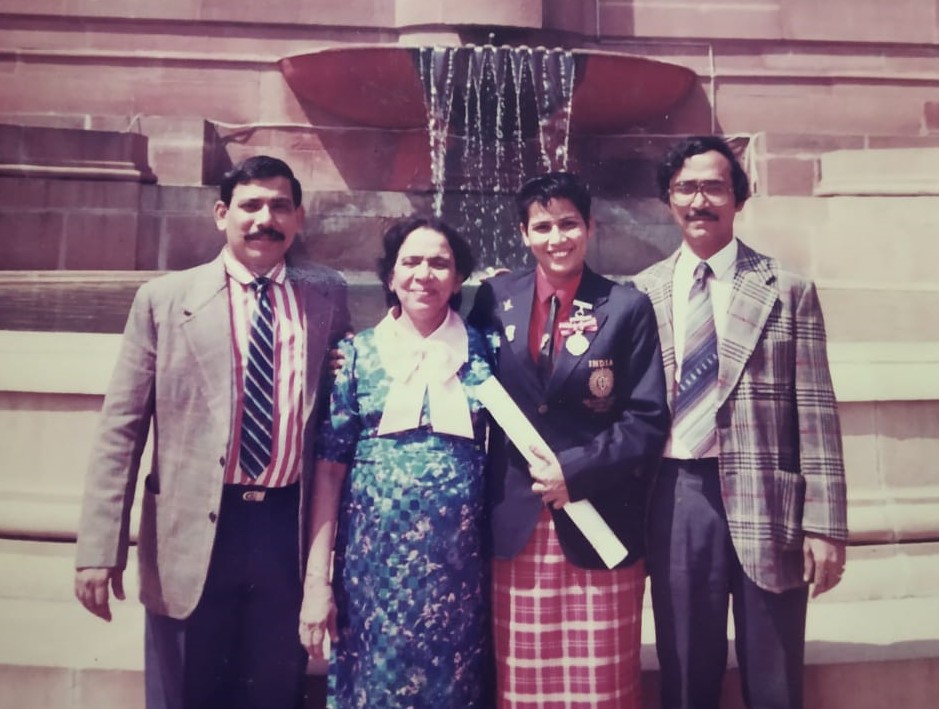
Selma with her mother and brothers Vincey (l) and Alvito
Selma went from strength to strength. She was selected to the India B team for the Begum Rasool Cup in Chennai in 1975 but the team was scrapped at the last moment and Selma had to watch the tournament from the stands. “That may have been a bit disappointing but it hardly affected my enjoyment or progress in the game,” she says. In 1979, however, Selma was selected to the Indian team proper and it led to a colourful career.
She represented India at two World Cups – Vancouver 1979 and Kuala Lumpur 1983 where she was captain. Selma was also a member of the 1980 Moscow Olympic team where women’s hockey debuted and toured with the national team in Russia, Germany, Singapore and Japan. Her high moment, however, was at the 1982 Asian Games where women’s hockey made its first appearance.
Selma scored 12 goals (the highest number of field goals scored by an individual) as India stormed to the gold medal. It was there that she formed a fearsome trio with Naazleen Madraswala (now Namrata Shah) on the left-wing and Rajbir Kaur at centre-forward. “Rajbir and I had superb rapport on and off the pitch,” Selma recollects. “Sudha Chowdary is another player I jelled very well with but I fondly remember all my teammates of that gold medal victory and the feeling of pride on the podium, hearing the national anthem being played… all this is deeply etched in my memory,” Selma says.
“To know that my older brother Alvito was in the crowd made it even more special. After all, he took me along to watch the Gold Cup and Aga Khan matches where I watched great players like Govinda, MP Ganesh and Balbir Singh. My younger brother Malcolm played at the University level and it inspired me to work hard at my game. We (the Bombay team) trained with the Tata’s men’s team and I recall playing with Gilbert Lobo, Nasir Ali and Olympio Fernandes… those were fabulous days,” Selma, says, going back in time.

There are other memories that stand out for Selma. “At the 1980 Moscow Olympics, I turned 20. I received flowers and a gift from the organizers in the Olympic Village,” she fondly recalls. “
“I cannot forget receiving the Padma Shri award in 1991. My mother (Julema) and two of my brothers Alvito and Vency, who maintained my playing CV, were present at the ceremony. Then, when I returned home, my father (Thomas) was there to walk me home from the lane amid fireworks and festoons. And how can I forget the sweet gesture of my brother Gilroy, who is no more. He displayed this huge card with the word congratulations in our living room! Or the citation that went with the award that he placed in the family album.”
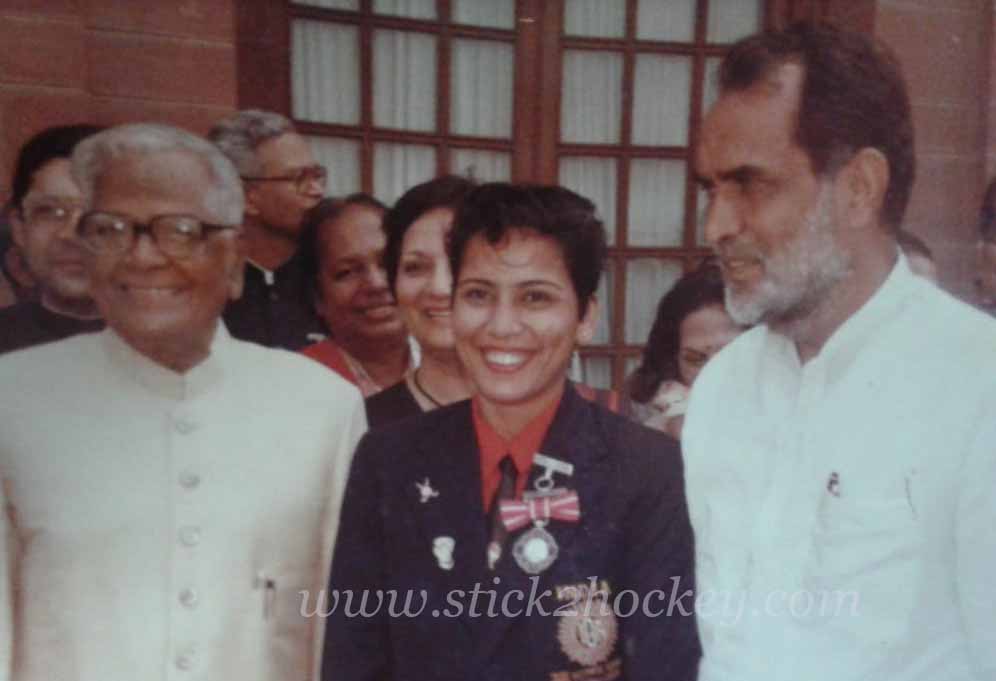
A rare moment: Flanked by President of India (l) and Prime Minister after receiving Padamshree award, 1991
Selma gushes with admiration for coach Balkishen Singh. “He deeply influenced my development at the India level. He was my mentor at the camps in Patiala and Delhi as we prepared for the Asian Games,” Selma says, reflecting on days of hard training in the hot sun.
There were moments of deep dejection too. One that was shared by the team — the 1980 Moscow Olympic failure to clinch a medal, something that still rankles.
“We were expected to win the tournament (marred by the US-led boycott) but we lost our way towards the end and finished fourth. We failed to convert chances that came our way and to make matters worse had a goal wrongly awarded against us in the match with Zimbabwe, the eventual champions.”
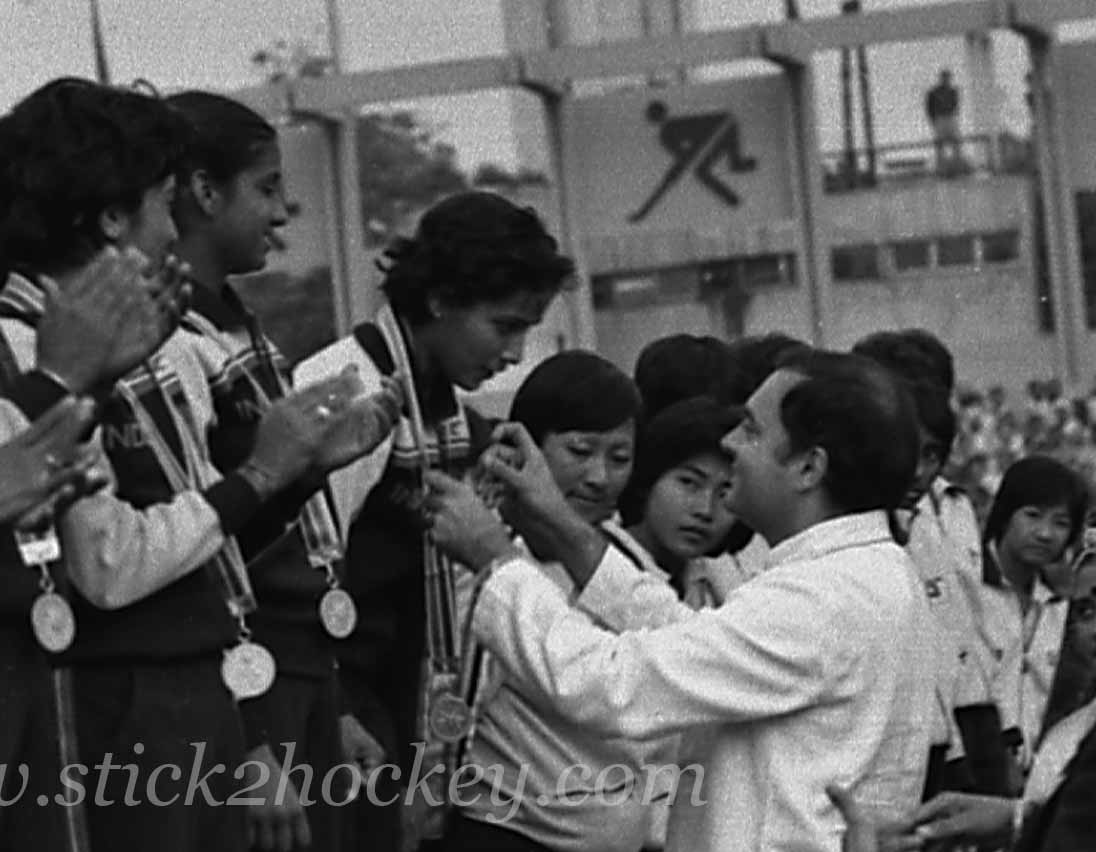
Receiving the Asiad gold medal at the hands of former Prime Minister Rajiv Gandhi
But for the most part, Selma remembers the struggle and sacrifice to represent the country. “I used to study for my University examinations in the SPRF barracks we were put up in Pune,” she recollects. Selma, however, is grateful for employment provided by the Railways, in particular Western Railway where she eventually rose to the post of Assistant Sports Officer.
“Hockey was never a lucrative sport, especially for us women. The men, however, had opportunities provided by the banks and some corporate entities such as Tata’s, Mahindras. The Railways, though, played a major and pioneering role for women players as much as it did the men. The fact that it dominated National championships bears testimony,” says Selma, a vanguard for the Indian Railways team in the national championships where the team won umpteen titles.
Even as she thumbs up the India women’s team of today, she laments the lack of opportunity to play hockey with the demise of the many and varied tournaments existent in her heyday like the Abel David Cup in Pune.
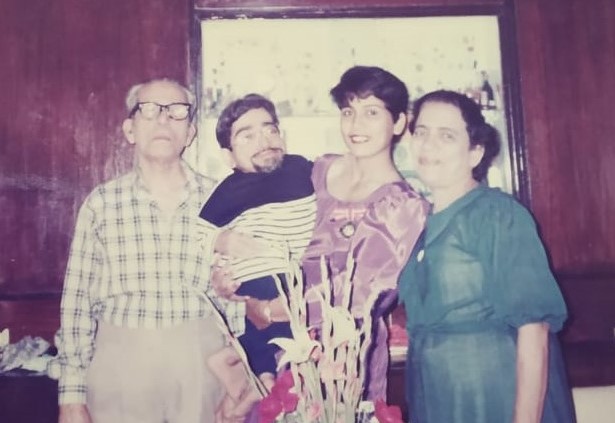
With her late handicapped brother Gilroy
Selma’s tenure with the Indian team came to an end when she quit in 1983 owing to personal commitments. She, however, continued playing domestic hockey for the Railways before retiring altogether from the game in 1996. Selma opted for voluntary retirement in 2004 to care for her mother and is now involved in social work.
She still lives in her childhood home at Dabul in the locality where she tackled and dribbled past male players during her days of ‘gully’ hockey. The kites she flew have long been tucked away but the memories of those days full of joy, exuberance and energy haven’t. It forms the basis of advice that Selma offers to girls embarking on sports.
“If you’re passionate about a sport, pursue it with hard work, give it your all but don’t focus too much on getting results which will come in the long run.
“Most of all,” she says, “enjoy the process.”
Photos: Ashok Vahie & Selma’s personal collection
***
www.stick2hockey.com is India’s oldest hockey website. Launched in 1999, the website, edited and owned by hockey historian and author K. ARUMUGAM, has covered all
major tournaments and events with precision. www.stick2hockey.com is the first site in the hockey world to bring viewers live text commentary and duly entered the prestigious Limca Book of Records. If vintage stories are what you are looking for, this site is the right one for you. You will also find pictures, some of them among the rarest, images of precious newspaper clippings, match reports, news breaks, interviews, features, statistics and history on a site respected by one and all in the hockey world.

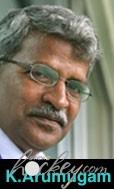 major tournaments and events with precision. www.stick2hockey.com is the first site in the hockey world to bring viewers live text commentary and duly entered the prestigious Limca Book of Records. If vintage stories are what you are looking for, this site is the right one for you. You will also find pictures, some of them among the rarest, images of precious newspaper clippings, match reports, news breaks, interviews, features, statistics and history on a site respected by one and all in the hockey world.
major tournaments and events with precision. www.stick2hockey.com is the first site in the hockey world to bring viewers live text commentary and duly entered the prestigious Limca Book of Records. If vintage stories are what you are looking for, this site is the right one for you. You will also find pictures, some of them among the rarest, images of precious newspaper clippings, match reports, news breaks, interviews, features, statistics and history on a site respected by one and all in the hockey world.

This is so inspiring. You made India proud with your skills and techniques. All honours well deserved. More power to you and keep motivating #womenempowerment
A lifetime of accomplishments..
Proud of you girl..
Way to go Selma!!
Great write up👌🏼👌🏼👌🏼
Just 2 days ago was was telling my boys about the “tomboy” of our building 🤗
And now lots of memories come flooding back after reading this article
But would like to add one more game that you played with the building boys – kitti kitti what number 🤣🤣
Hats off you girl
Supar
Proud of you girl
Commendable achievement. Kudos to you Ma’am. Hope the younger generation gets inspired. 👍
Nice
Nice thought sir
Nice
Good
Willie Anton was a talented player who played for State Bank of India and Mumbai. He was a good footballer who played in the reputed Harwood League. That Selma has mentioned him speaks about his coaching abilities. And she aptly pays tribute to Jaswant Singh who shaped the careers of many players especially women! To talk ofJaswant Singh let me say that people were easily able to tell the exact time while he walked on to the ground but they couldn’t do the same in the evening as it wasn’t fixed. It depended on the efforts required to instruct/correct a player or a group. There used to be a lot of work done on individuals post a practice session. That she was further trained by Satinder Pal Walia and Balkishan Singh testifies that you need good hands to polish an uncut diamond!
Great job you did Madam Selma in your life and you were and you are great in fields and you are also superb in social paraphernalia. You deserve to be applauded throughout. My best of wishes for your life ahead..God bless you.
Regards,
G.R.Patira